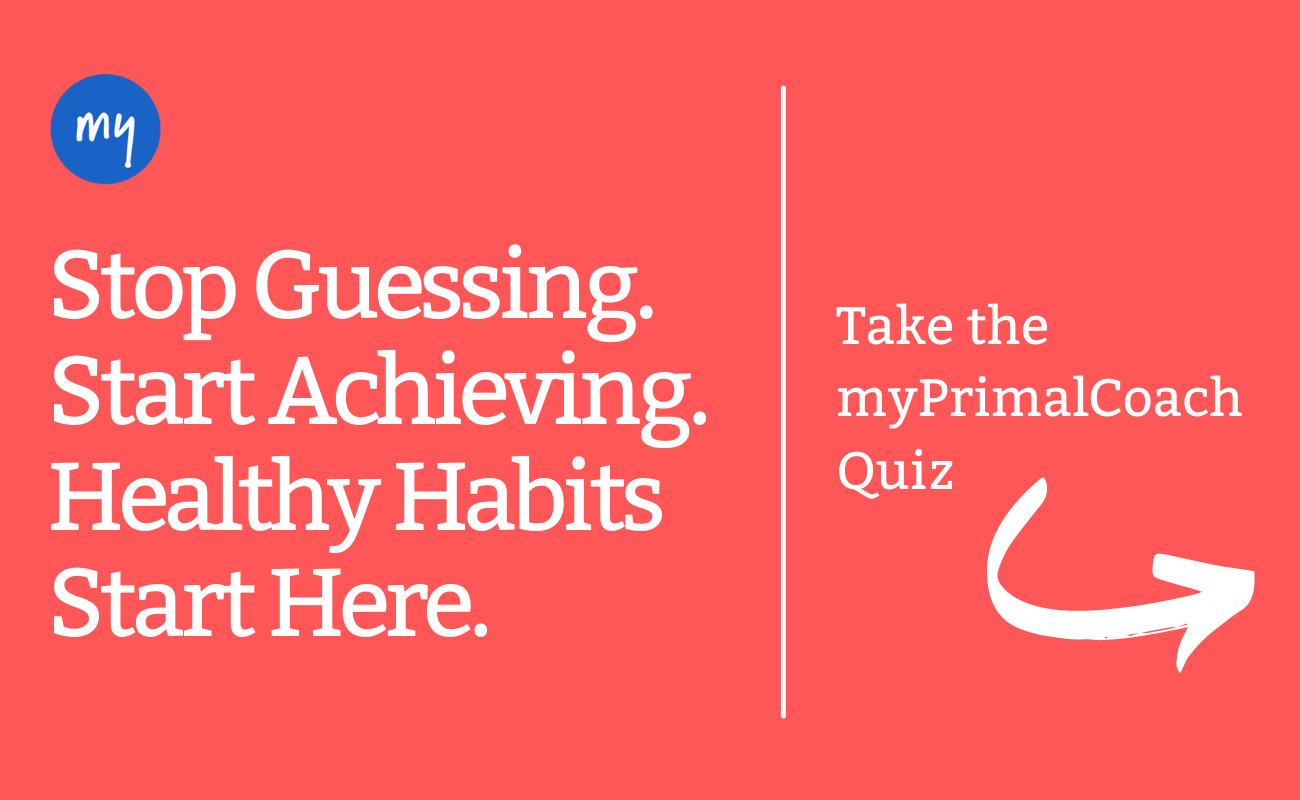Here’s why we love intermittent fasting:
- It’s approachable: There are lots of different ways to fast intermittently. It’s just about finding what works best for you.
- It’s healthy: While other dietary strategies restrict the types of foods you eat, intermittent fasting puts the emphasis on when you eat, not what you eat.
- It works: Intermittent fasting has been proven to help people lose weight, improve cardiovascular health and insulin sensitivity, and maybe even live longer.
But you have to know how to do it right. Which is what this beginner’s guide to intermittent fasting is all about.

What Is Intermittent Fasting and How Does it Work?
Intermittent fasting is an eating style that involves cycling through periods of eating and fasting. How many hours you choose to fast is entirely up to you. And the hours when you’re asleep count.
When you fast, insulin levels drop, growth hormone levels increase, and certain genes are activated—like the ones that tell your body to burn fat, repair cells, and ward off disease.
Think about it: If your body never gets a break from food and isn’t pushed to exercise, it doesn’t have to dip into its fat stores for energy. Rather, it gets all the fuel it needs from the calories you eat. But if you hold off on giving your body calories, first it burns through the calories left over from your last meal…and then it exhausts your sugar stores…and only then can it start burning stored body fat.
IF Styles
Some approaches to intermittent fasting are more popular than others.
- The 16:8 method: Fast for 16 hours and then eat as you please for 8 hours. Because sleep hours count, you’re already halfway into your fast upon waking!
- The 5:2 approach: Two fast days and five non-fast days a week. You’re allowed to eat 500-600 calories on your fast days.
- Eat-stop-eat: Fast for 24 hours once or twice a week. You can drink coffee, tea, or other non-caloric beverages on fast days.
- Alternate day fasting: Fast one day (eating 500-600 calories for sustenance) and then eat regularly the next. And so on.
- Eat only when you need to: Skip meals when you feel like it. Let your hunger be your guide.
- OMAD (one meal a day): Eat one meal a day. A big one. And if need be, snack on low-calorie, raw fruits and veggies.
And there are many different variations in between. It takes experimenting to find the right intermittent fast for you. What might work for you one day or week is likely to shift the next. Stay flexible. And give yourself credit for any fast 14 hours or over.
Intermittent Fasting FAQs
Before we discuss all the benefits of fasting intermittently, let’s clear up some questions you might have.
Can I exercise while intermittent fasting?
You sure can!
When you work out at the end of a fast, your body is low on stored carbohydrates. It gets straight to work burning fat. And you might actually find that you can work out stronger, enjoy greater gains in muscle protein synthesis, and have a higher anabolic response to your post-workout meal.
However, because you’re putting your body to work with less fuel, it might also try to leach energy from your muscles if you aren’t well adapted to a low-carb eating strategy, which isn’t ideal. To help improve performance and build rather than lose muscle mass, you can consume a complete essential amino acid supplement 30 minutes before and after your workout. Taking the branched-chain amino acids alone doesn’t give you quite the same push as having all nine essential amino acids working for you.
The type of fast will dictate the type of exercise you do. If it’s a 16-hour fast, you may have the energy to take the intensity up. But on a full-day’s fast, you may want to keep the intensity low, such as with a leisurely walk or restorative yoga.
Listen to your body. If you start feeling dizzy or weak, then stop exercising. Hydrate with an electrolyte-rich drink and eat a balanced meal.
As for after your workout and fast, be sure to consume foods high in protein.
What can I consume during a fasting window without breaking my fast?
Technically, consuming anything with calories breaks a fast. However, you can still get all the benefits of a fast even if you consume up to 50 calories of fat…that’s about what’s in the cream you add to your coffee.
Here’s your safe list:
- Water (still or fizzy)
- Coffee
- Tea
- Bone broth
- MCT oil
- Apple cider vinegar (1-2 teaspoons diluted in water)
What should I eat once my fast is done?
Technically you can eat anything you want during your eating window. But that doesn’t mean you should, especially if you want sustained IF benefits, like weight loss and fat burning.
It can be tempting to overeat once your fast is done. It’s far better to ease back into eating with smaller portions and foods that are easier to digest to avoid bloating, constipation, or gas.
You can end your fast with a protein shake, dried apricots or raisins, fermented foods, and healthy fats like eggs and avocados.
Should I be feeling so bad?
It’s normal to experience fasting pains your first few rounds in. But if you’re feeling unusually irritable, stressed out, fatigued, or depressed, then intermittent fasting, or at least the approach you’re engaging in, may not be the best fit. Ease up, and talk to your Primal Health Coach to see if you can tweak your IF method or employ a new weight-loss strategy altogether.
The Benefits of Intermittent Fasting
Calorie restriction—of which intermittent fasting is an offshoot—has been proven to have neuroprotective benefits and to activate autophagy. Autophagy is how the body clears out damaged cells to make room for new, healthier ones…and it’s a longevity booster. But calorie restriction is intense, and, if IF has anything to say about it, not entirely necessary. You can do a 12-15 hour fast and get similar health benefits.
Weight Loss
A study published in the American Journal of Clinical Nutrition showed that intermittent fasting (eating just one meal a day) has a leg up on traditional diets. Participants found it easier to take to intermittent fasting and keep it up long term. They also burned more fat—and quicker.
Researchers from Yale and the University of Copenhagen showed that intermittent fasting increases gene activity, which in turn increases the number of calories the body burns, as well as the amount of fat. A study from the American Journal of Physiology concurred with evidence that fasting activates the genes that encode the proteins and enzymes that tell the body to burn fat.
It seems that intermittent fasting also plays a role in the type of fat your body stores. A 2017 study published in Cell Research indicates that IF can help turn white fat cells (the kind linked to obesity and type 2 diabetes) into brown fat cells (the kind that burn energy and may help reduce obesity).
Heart Health
Intermittent fasting can help mitigate various causes of heart disease. Studies show it can improve blood pressure and resting heart rates, as well as lower triglycerides and LDL cholesterol. One study showed that obese participants on an alternate-day-fasting program reduced body weight and waist circumference after eight weeks, along with a reduction in LDL and triglyceride concentrations of 25% and 32% respectively. And a comprehensive analysis from the journal Nutrients found that IF:
- Decreases body mass and reduces total cholesterol, triglycerides, and LDL cholesterol
- Reduces inflammatory markers and inhibits the development of atherosclerotic plaque
- Increases BDNF, which lowers systolic and diastolic blood pressure
- Improves glucose metabolism and insulin sensitivity
- Limits cardiac hypertrophy (enlargement/thickening of the heart)
Brain Health
The brain is capable of building new neurons (neurogenesis) and forming and reorganizing synaptic connections (neuroplasticity)—and IF helps. Any caloric restriction will, but intermittent fasting is shown to have the most pros with the least cons.
IF helps decrease oxidative stress, inflammation, blood sugar levels, and insulin resistance. Studies show that intermittent fasting can help increase the growth of nerve cells and boost memory in animals. It also promotes the production of brain-derived neurotrophic factor (BDNF) that helps to stave off depression and other mental health issues. IF has even been shown to help protect against brain damage from strokes.
Cautions and Contraindications
Before we send you off for your first fast, we have a few last words of wisdom.
- It may not be the best for athletes, who need to make sure they’re getting enough calories to support their athletic pursuits. Work with your health coach to determine if intermittent fasting is appropriate while training.
- Women CAN fast, contrary to what you might hear. Menopausal women seem to do especially well. However, IF is not safe for pregnant or nursing women.
- If you have a history of disordered eating, please talk to your health coach or other care provider before making intermittent fasting a go-to diet strategy.

